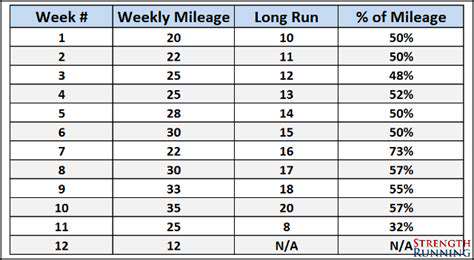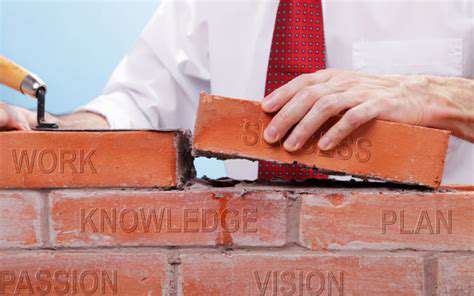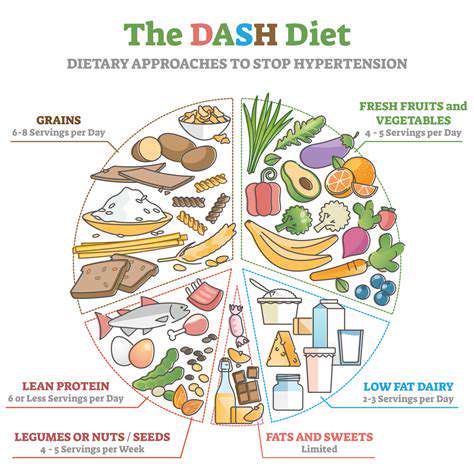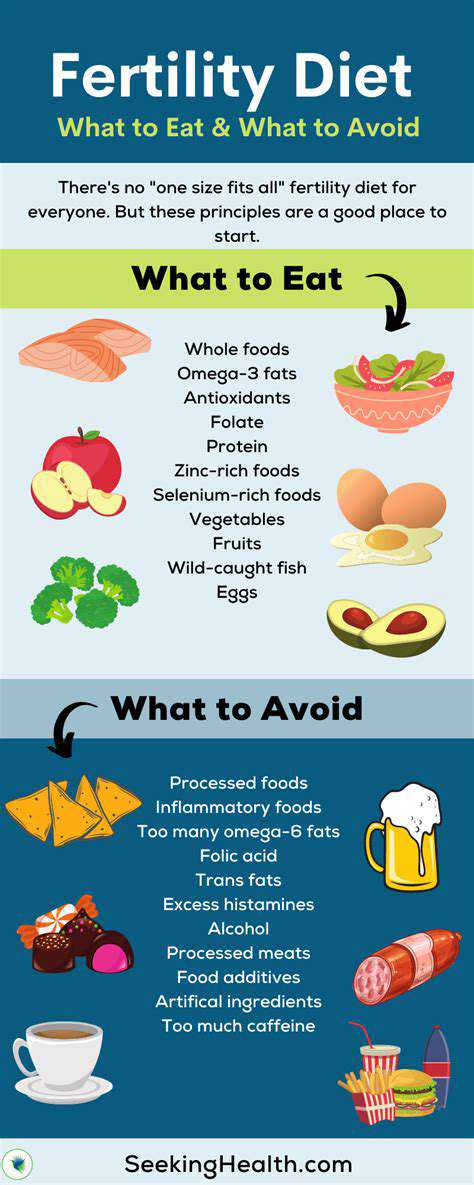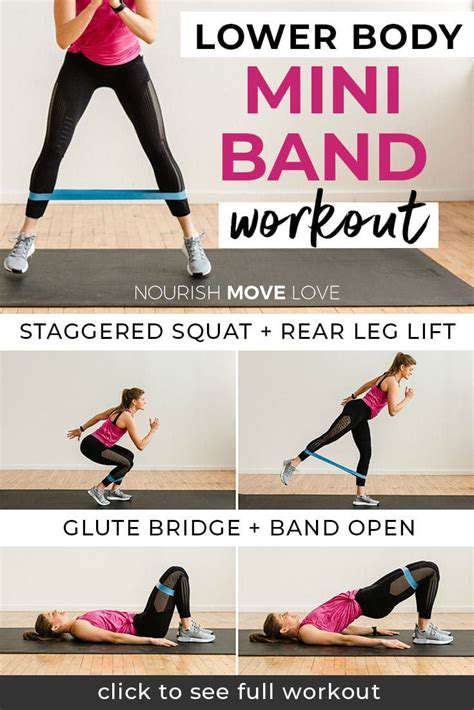Best Tips for Managing Stress in Your Daily Life
Understanding the Root Causes
Identifying your stress triggers is the first crucial step toward effective stress management. It's not enough to just acknowledge feeling stressed; you need to delve deeper and pinpoint the specific situations, people, or thoughts that consistently contribute to your feelings of overwhelm. This involves self-reflection and honest introspection, recognizing patterns in your daily life, and understanding how your emotions respond to different stimuli. Taking the time to analyze these root causes is vital for developing targeted coping strategies.
Consider keeping a journal to track your stressors. Note down the specific circumstances surrounding each instance of stress, including the time of day, your location, who was involved, and what thoughts or feelings you experienced. This detailed record-keeping can help you uncover recurring themes and patterns that might otherwise be overlooked.
Recognizing Physical Symptoms
Often, stress manifests not only emotionally but also physically. Paying attention to your body's responses can provide valuable clues about your stress triggers. Do you experience headaches, muscle tension, or stomach problems when faced with certain situations? Recognizing these physical symptoms can help you connect them to the underlying stressor.
Understanding your body's signals is a critical component of stress management. For example, if you notice a rapid heartbeat or shortness of breath in specific social settings, it could indicate that social interaction is a significant stress trigger for you. By linking physical sensations to specific situations, you can begin to isolate the source of your stress.
Analyzing Your Thought Patterns
Your thoughts play a significant role in how you perceive and react to stressful situations. Negative or catastrophic thinking can amplify stress, while positive and realistic thinking can help you manage it. Identifying negative thought patterns, such as overgeneralizing or catastrophizing, is essential for developing healthier coping mechanisms.
Challenge these negative thoughts. Ask yourself if your thoughts are based on facts or assumptions. If you find yourself thinking I'll fail this presentation, try to reframe it with a more realistic and positive perspective, such as I've prepared thoroughly, and I'm confident I can do well. This process of cognitive restructuring can significantly reduce the impact of stress-inducing thoughts.
Identifying Environmental Stressors
Your environment can significantly impact your stress levels. Consider factors like your work environment, your living situation, or even your social circles. Are there certain places or people that consistently cause you stress? Understanding these environmental stressors is important for creating a more supportive and less stressful environment.
Making changes to your environment can be a powerful stress-management tool. For example, if your commute is a major source of stress, explore alternative transportation options or adjust your daily schedule. If a particular relationship is consistently stressful, consider setting boundaries or seeking support from friends or family.
Prioritizing Self-Care
Self-care is often overlooked but is a crucial aspect of stress management. Taking time for activities that nurture your physical, mental, and emotional well-being can help you better cope with stress. Engage in activities that relax and rejuvenate you, such as exercise, meditation, spending time in nature, or pursuing hobbies. Prioritizing your well-being is an investment in your long-term stress management success.
Consistent self-care practices can help you build resilience. This resilience allows you to better navigate and manage stressful situations as they arise. Regularly prioritizing self-care, even in small ways, can have a significant impact on your overall well-being and your ability to manage stress effectively.
Harnessing the Power of Mindfulness and Relaxation Techniques
Understanding Mindfulness
Mindfulness, at its core, is the practice of paying attention to the present moment without judgment. This involves focusing on your thoughts, feelings, and sensations as they arise, without getting carried away by them. It's about cultivating a non-reactive awareness of your experience, which can be incredibly helpful in managing stress and improving overall well-being. This practice can be incorporated into daily life, from simple breathing exercises to mindful eating, and it's a powerful tool for building resilience and reducing anxiety.
Research consistently demonstrates the benefits of mindfulness for stress reduction. Studies have shown that regular mindfulness practice can lower cortisol levels, the hormone associated with stress, and improve the body's ability to cope with challenging situations. This, in turn, can lead to better emotional regulation and a greater sense of calm and clarity in daily life. By cultivating present moment awareness, mindfulness offers a pathway to a more balanced and fulfilling existence.
Effective Relaxation Techniques
Relaxation techniques are crucial complements to mindfulness. Techniques like progressive muscle relaxation involve systematically tensing and releasing different muscle groups, allowing tension to dissipate and promoting physical relaxation. Deep breathing exercises are also highly effective, focusing on slow, deep inhalations and exhalations to calm the nervous system. These practices can help to lower heart rate and blood pressure, reducing feelings of stress and anxiety.
Guided imagery is another valuable tool. This involves using your imagination to create a calming scene or experience, focusing on sensory details like sights, sounds, and smells. The visualization can transport you to a peaceful place, allowing your mind to detach from stressful thoughts and promoting relaxation. These various relaxation strategies can be incorporated into daily routines to manage stress effectively.
Incorporating Mindfulness into Daily Life
Integrating mindfulness into your daily life doesn't require a complete overhaul of your routine. Simple practices, like taking a few moments to appreciate the taste of your food during meals, or paying attention to the sensations of your body during a walk, can effectively cultivate mindfulness. Even a few minutes of mindful breathing exercises before a stressful meeting can significantly impact your ability to manage your reactions and responses.
Finding a quiet space for meditation, even for just 5-10 minutes each day, can be incredibly beneficial. There are many guided meditations available online and through apps that can guide you through the process. Mindfulness can be incorporated into almost any activity, from commuting to household chores. The key is to find moments in your day to focus on the present and cultivate a sense of calm.
Managing Stress with Mindfulness and Relaxation
Stress is an inevitable part of modern life, but its impact can be significantly mitigated through mindfulness and relaxation techniques. By consistently practicing mindfulness, you can develop a greater awareness of your internal state, allowing you to recognize and respond to stressful situations more effectively. This increased self-awareness can empower you to manage your reactions and responses to stress, promoting greater resilience and composure.
Relaxation techniques, like deep breathing and progressive muscle relaxation, provide practical tools to actively reduce stress. These methods provide immediate relief from tension and anxiety, allowing you to navigate stressful situations with greater calm and clarity. By combining mindfulness and relaxation techniques, you can cultivate a more balanced approach to stress management, leading to a healthier and more fulfilling life.
Prioritizing Self-Care: Fueling Your Body and Mind
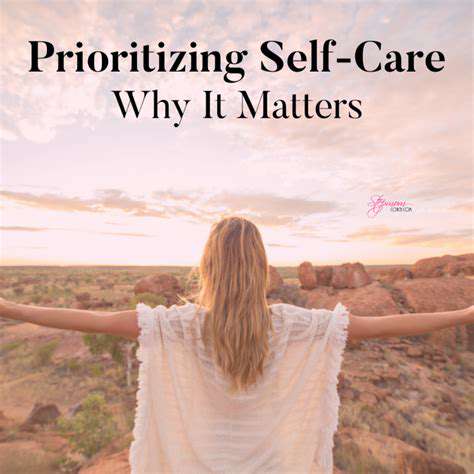
Prioritizing Self-Care for Enhanced Well-being
Self-care is not a luxury; it's a necessity for maintaining overall well-being. Prioritizing self-care activities, such as engaging in relaxing hobbies, getting enough sleep, and eating nutritious meals, can significantly impact your physical and mental health. By incorporating these practices into your daily routine, you can improve your resilience and effectively manage stress.
Consistent self-care allows you to better cope with challenges and maintain a positive outlook. It helps build emotional strength and fosters a sense of calm amidst demanding situations. This, in turn, leads to improved focus and productivity in various aspects of life.
Understanding the Components of Self-Care
Self-care encompasses a wide range of activities that nourish your mind, body, and spirit. This includes engaging in activities you enjoy, setting healthy boundaries, and prioritizing your needs. Recognizing and addressing your physical and emotional needs is crucial for sustainable well-being.
Taking time for yourself is not selfish; it's an investment in your overall health and happiness. By dedicating time to activities that rejuvenate you, you're better equipped to handle responsibilities and relationships effectively.
Physical Self-Care Strategies
Prioritizing physical self-care involves focusing on your physical needs, such as getting adequate sleep, maintaining a balanced diet, and engaging in regular physical activity. These simple yet crucial actions contribute significantly to your overall well-being.
Regular exercise, even moderate activity like a walk in the park, can significantly reduce stress and improve mood. Proper nutrition, including sufficient intake of fruits, vegetables, and whole grains, is essential for optimal physical function and energy levels. Sufficient sleep is crucial for physical and cognitive restoration and repair.
Mental and Emotional Well-being
Mental and emotional self-care involves practices that nurture your mental health, such as mindfulness, meditation, and engaging in hobbies. These activities can help you manage stress, improve focus, and foster a sense of calm and clarity.
Setting Realistic Goals and Boundaries
A crucial aspect of self-care is setting realistic goals and boundaries. It's vital to recognize your limitations and prioritize activities that support your well-being and avoid overextending yourself. This includes learning to say no to commitments that drain your energy.
By establishing clear boundaries, you create space for self-care and prevent burnout. Learning to manage your time effectively allows you to allocate resources to activities that genuinely nourish your mind, body, and spirit.
Finding Activities That Bring Joy and Relaxation
Discovering activities that bring joy and relaxation is a key component of effective self-care. This could include anything from reading a book to taking a warm bath, or engaging in creative pursuits like painting or playing music. Finding these activities and incorporating them into your routine can significantly improve your overall well-being.
Identifying and engaging in activities that bring you joy is essential for maintaining a positive outlook. These enjoyable moments create positive associations and foster a sense of fulfillment.
The city's midnight hour transforms into a vibrant tapestry of activity, a stark contrast to the quietude of daytime. Street performers weave captivating narratives with their music and dance, captivating passersby with their unique talents. This nocturnal energy is a testament to the city's resilience and its inhabitants' ability to embrace the night.
Read more about Best Tips for Managing Stress in Your Daily Life
Hot Recommendations
-
*Guide to Managing Gout Through Diet
-
*Best Habits for Financial Well being
-
*How to Build a Routine for Better Mental Health
-
*How to Eat Healthy on a Budget [Tips & Meal Ideas]
-
*Guide to Practicing Self Acceptance
-
*How to Incorporate More Movement Into Your Day
-
*Guide to Managing Chronic Pain Naturally
-
*Guide to Building a Reading Habit for Well being
-
*Top 5 Weight Loss Supplements That Actually Work
-
*Best Exercises for Postpartum Recovery [Beyond Abdominal Work]


